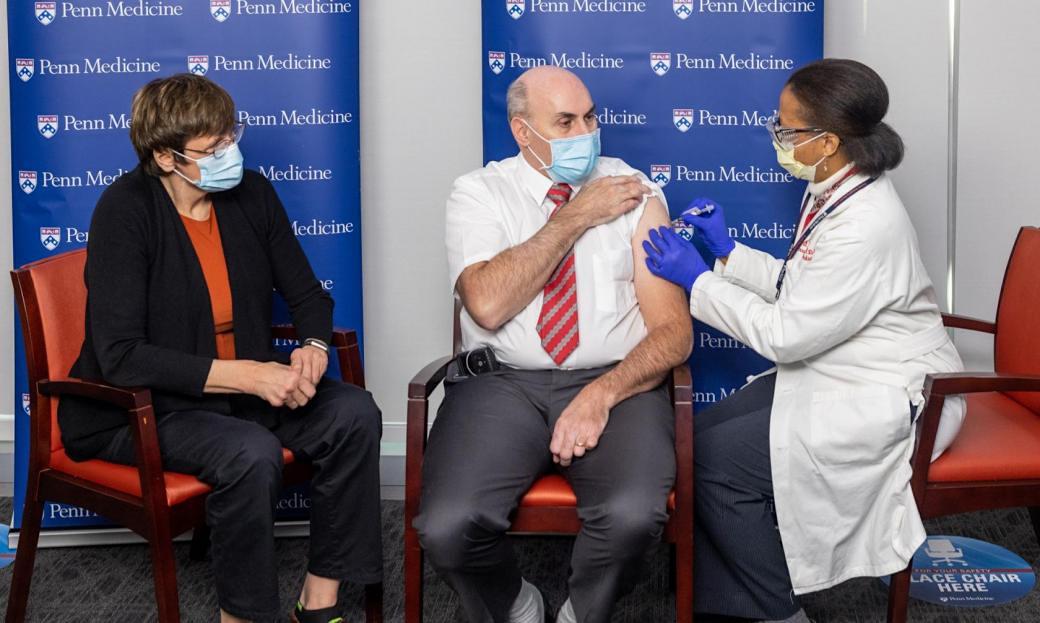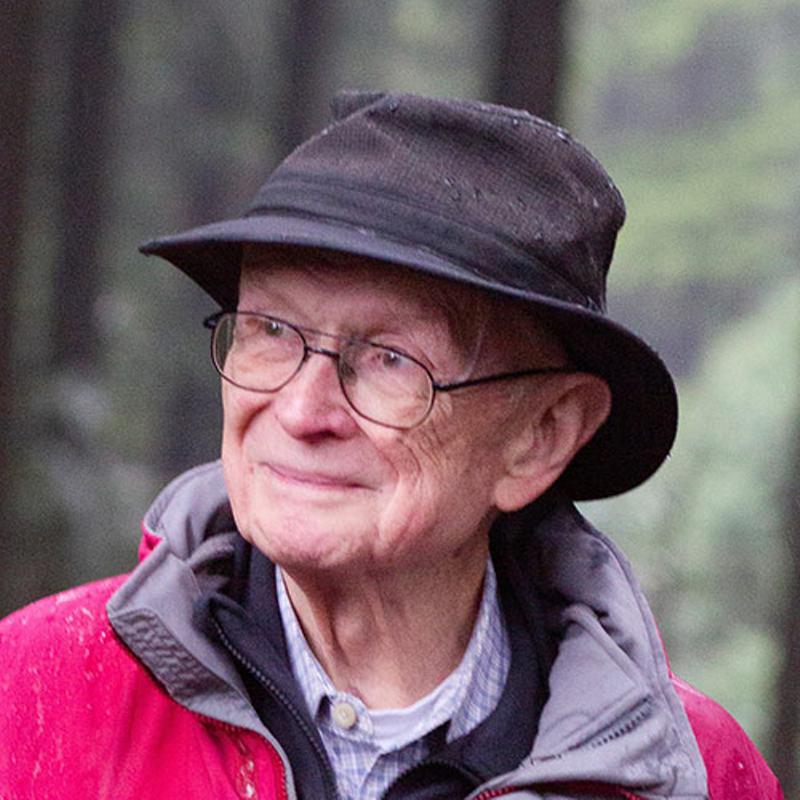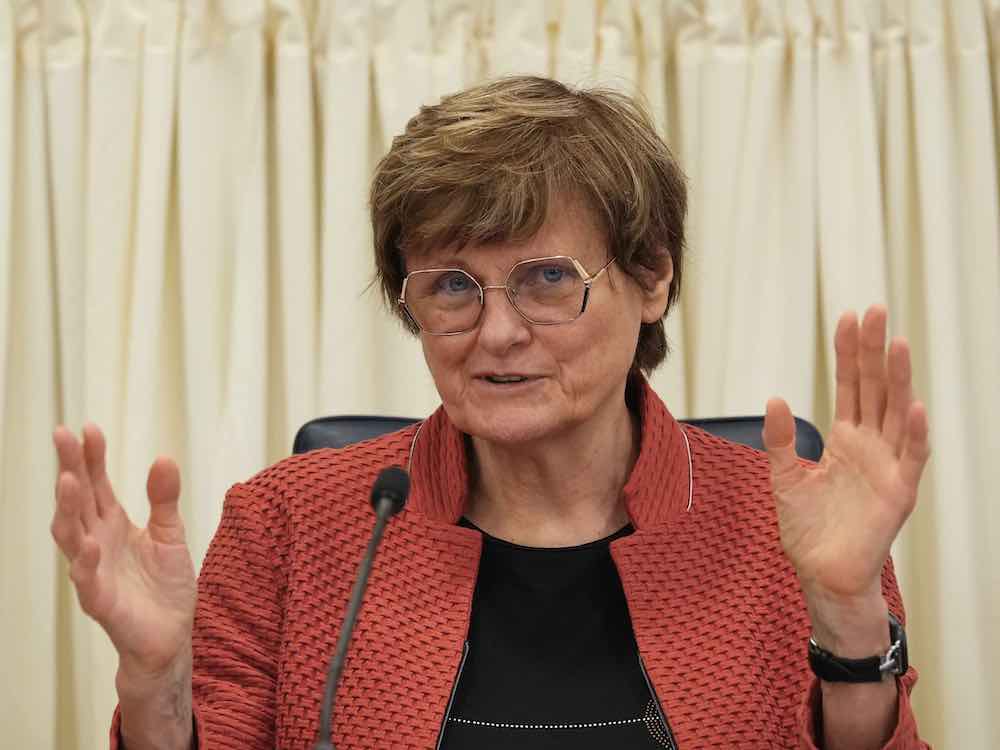- Breaking Through: My Life in Science
- Crown (2023)
Last year, renowned Hungarian American biochemist Katalin Karikó and her colleague Drew Weissman won the Nobel Prize in physiology or medicine for their work using messenger ribonucleic acid, better known as mRNA, to develop a vaccine for COVID-19. While most vaccines take years to be developed, tested and approved, COVID-19 vaccines appeared with astonishing speed, within a year. But Karikó’s long years of research into mRNA had laid the foundations for that achievement.
Breaking Through: My Life in Science is an apt title, because Karikó’s scientific career has been years of patient work to overcome obstacles, with intermittent sudden successes. Her most dramatic breakthroughs have been against the science cultures of communist Hungary and capitalist America.
Born in 1955, a year before the Hungarian revolt against the Soviets, Karikó grew up in a small town as a butcher’s daughter. After 1956, Hungary had adopted “goulash communism,” with a little more emphasis on providing more consumer goods and a little room for political debate. But Karikó’s father was blacklisted for insufficient involvement with communist politics. Thereafter he could find only labourer’s jobs and worked as a butcher only for trusted friends.
Karikó went to school and did well — not, she tells us, because she was smart but because she worked hard. “What I lacked in natural ability,” she writes, “I could make up for in effort. I could work harder, put in more hours, do more, and do it with greater care.”
That work ethic took her from best biology student in her town to best in her county, and eventually to a good university. There, the only interruption to her studies was Béla Francia, a high school student five years younger. He made Karikó laugh and took her on her first date, and the two eventually married. Able to build or repair almost anything, he was a keeper. And he was happy to put Karikó’s career first.
Politics only occasionally complicated her life: when she was in high school, a teacher threatened to keep her out of university. Then, when she won a prestigious award in her third year, her name vanished from the list of recipients. “I was, after all, the daughter of someone who in 1957 had been accused of crimes against the Communist party. Apparently, my father’s arrest reverberated still, a decade and a half later.”
A visit from the secret police
Still, Karikó got the award and went on to graduate, and then won a fellowship to the Biological Research Centre in Szeged, Hungary, one of the best places in eastern Europe to do science. Here she began to study mRNA, with financial support from a Hungarian pharmaceutical company that hoped her work could lead to a new antiviral drug. But just as she was getting started, two members of the Hungarian secret police dropped by her home and asked her to keep an eye on her colleagues, especially those from other countries.
“It’s possible some of them could be... foreign agents,” she says one of them told her. “If they are, they might try to steal discoveries made by our own Hungarian researchers.”
They had already talked with her father, and hinted that he would be disappointed if her career were to end because of his long-ago blacklisting.
Karikó agreed to co-operate. “But even as I said it, I already knew I would give them nothing. I would never write one note reporting anyone, never place a single call. And I never did. Not once.”
After seven years at the Biological Research Centre, Karikó lost her job for lack of funds. But by then she had made considerable progress in understanding messenger RNA.
She and Francia were married by then and had a daughter; Hungary might be a police state, but it provided excellent daycare, enabling Karikó to work steadily.
“Sometimes today,” Karikó writes, “people ask me what it takes for a woman to be a mother and a successful scientist. The answer is simple, obvious: One needs high-quality and affordable child care, as I had in Hungary.”
One also needs a steady job, and in 1985 the Hungarian pharmaceutical company dropped its support for Karikó’s mRNA work.
She recalled advice she’d read in high school, in Hans Selye’s book The Stress of Life: “‘Do not blame. Focus on what you can control. Transform bad stress into good stress,’” Karikó writes. “That’s when I turned instead to what was in my power: I had to apply for a new job.”
American culture shock
No other Hungarian lab was interested, and labs elsewhere in Europe expected Karikó to bring her own money for research. She applied for a position at Temple University, the only public university in Philadelphia, Pennsylvania. The culture shock was considerable: the lab she was assigned to was filthy and cockroach-infested. She started work by scrubbing the place down. Her boss wouldn’t allow her to read scientific journals in the lab and threatened to have her visa pulled when she wanted to accept another job offer.

Karikó managed to wangle a stopgap position with a visa and eventually landed a permanent job at the University of Pennsylvania. By now she understood that American medical science depends largely on government grants with some private donations.
“There’s tremendous pressure,” Karikó writes, “to do the kind of studies that will get you the funding you need — to go, in other words, where the attention and money already are. That’s not necessarily where the breakthroughs lie, nor is it where the greatest need is. Funding, in other words, can leave very good ideas totally unseen.”
She also observes that “succeeding at a research institution like Penn required skills that had little to do with science. You needed the ability to sell yourself and your work. You needed to attract funding. You needed the kind of interpersonal savvy that got you invited to speak at conferences or made people eager to mentor and support you.... I wasn’t interested in those skills. I didn’t want to play political games. Nor did I think I should have to. Nobody had ever taught me those skills, and frankly I wasn’t interested in them anyway.”
Instead, Karikó wrote grant applications that went nowhere and met private investors who promised money that never came. The university wasn’t happy; it refused to promote her to research associate professor but let her stay on as “senior research investigator.”
She survived with the support of colleagues who believed in her ideas and respected her as a scientist.
Such colleagues were rare. “There were so many researchers who worked beautifully within the system of academic medical research. They got along with their colleagues, they joined committees, earned every gold star. By nearly every measure, they were successful. But they were so incurious!” she writes.
Incurious scientists
One day in 1997, Karikó had a chance meeting at a photocopier with another curious scientist — Drew Weissman — who was making copies of journal articles just as she did. An immunologist and microbiologist, Weissman was eager to develop new vaccines. When Karikó described her interests in mRNA, Weissman was instantly interested: the new lab he was starting up lacked access to mRNA.
“Sometimes even science, with all its rigour and discipline, depends on plain old luck,” Karikó writes.
Some of the luck looked bad. At one point Karikó thought the mRNA she was creating for an HIV vaccine triggered serious inflammation, an excessive immune response. “If we couldn’t figure out how to keep mRNA from activating the immune system,” she writes, “my work would be useless.”
Endless experiments followed. “There is a reason that research is so named,” Karikó observes wryly. “You’re not just searching, you’re repeating the search. You search, and then you re-search. Again and again and again.” She was also having uncomfortable interviews with her boss about how little funding her work was bringing in.
Karikó ignored his warnings and focused on preventing mRNA from causing inflammation. Eventually, she and Weissman succeeded. They wrote a paper on the subject; Nature, a major journal, rejected it.
A more specialized journal accepted it, and the researchers braced for a flood of phone calls from media and other scientists.
Eviction day
The calls didn’t come. But Karikó and Weissman kept working and publishing, and created a company that would develop medicines using therapeutic mRNA. It didn’t attract funding either.
The University of Pennsylvania was still unhappy about her inability to bring in money, and showed it one day in 2013 when she came to work and found her belongings in the hallway. “There was my rolling chair, there were my binders, my hot plate, my posters, my boxes of test tubes.”
That was it. Karikó retired from Penn and began looking for a new home in the biotech industry. She found it in a small German startup called BioNTech. While Francia remained in the United States, Karikó, now 58, would live in Mainz, flying home every couple of months to work remotely for two weeks before returning to Germany. Her work was going well.
“Then one day in January,” she writes, “six years after I’d started at BioNTech, [my boss] read an article in The Lancet about something unfolding on a different continent entirely: a new respiratory virus circulating through Wuhan, China.”
BioNTech’s owners decided to put all its resources into developing a COVID-19 vaccine and partnered with Pfizer to make it. Almost exactly one year after the first cases had been diagnosed in Wuhan, the Pfizer-BioNTech vaccine received emergency use authorization from the U.S. Centers for Disease Control and Prevention.
Years of work by Karikó and Weismann had laid the foundations for that extraordinarily swift development and distribution. A study in September 2022 estimated that by then vaccinations had prevented over 14 million deaths — and could have prevented millions more if rich countries like Canada had delivered vaccines to poor countries.
Science interests governments only for its political value. Whether in Hungary or in the United States, Karikó had to break through political barriers while working in institutions that relied on government or private funding. Despite her stubborn work ethic and understanding of science, her achievements ultimately depended on luck — and good child care.
Karikó concludes with excellent advice for aspiring scientists in a science-hostile world: “I want to be the one to tell you now: Do not stop. Your future contribution might still be hypothetical. Please treat it like it’s real. It matters. It matters even if you don’t get to see the impact. That’s not the part any of us gets to control. Just keep going with your one more thing, and your one more thing, and your one more thing after that.” ![]()
Read more: Health, Books, Coronavirus, Science + Tech

















Tyee Commenting Guidelines
Comments that violate guidelines risk being deleted, and violations may result in a temporary or permanent user ban. Maintain the spirit of good conversation to stay in the discussion and be patient with moderators. Comments are reviewed regularly but not in real time.
Do:
Do not: